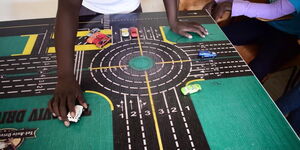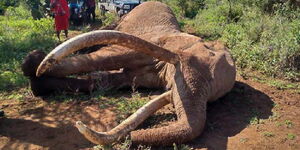720,000 refugees at Dadaab and Kakuma in Kenya face reduced food rations due to critical funding shortages, the United Nations World Food Programme (WFP) has revealed.
Noting that the refugees may be affected starting June, the UN agency said that while they have continued to receive support from different donors, they are finding it increasingly difficult to cope with the ever-increasing number of asylum seekers.
"This increase in the number of asylum seekers has stretched the needs of refugees, which has, in turn, outstripped the availability of funds," WFP’s Deputy Country Director in Kenya, Baimankay Sankoh, said in a statement.
Sankoh revealed that apart from the decline in food assistance, all kinds of cash assistance will also be halted until the funding crisis is resolved.
WFP revealed that it is facing critical funding shortages, forcing the agency to reduce food assistance to the lowest levels ever recorded.
According to the WFP, Kenya has witnessed an overwhelming increase in refugees over the past five years, with the numbers increasing by over 70 per cent, from around 500,000 to 843,000, as people flee conflict and drought in neighbouring countries such as Somalia and South Sudan.
“WFP’s operations supporting refugees in Kenya are under immense strain, with available resources stretched to their limits. We have had to make the difficult decision to again reduce food assistance. This will have a serious impact on vulnerable refugees, increasing the risk of hunger and malnutrition,” Sankoh said.
In 2024, WFP partnered with Kenya’s Department of Refugee Services (DRS) and UNHCR to provide food assistance, mostly as a mix of cash and in-kind food, to 720,000 refugees in Dadaab and Kakuma camps and Kalobeyei settlement.
WFP has repeatedly adjusted ration sizes to align with available funds. The latest reduction in February gave refugees 40 per cent of a full food ration based on a daily recommended intake of 2,100 kcal.
Apart from the food, the refugees and host communities benefit from programs that foster self-reliance and integration by supporting access to fields for crops, building water infrastructure for irrigation and livestock, and constructing food markets to help the community sell their produce.
Citing concerns over the impact of the funding crisis on the refugees, including parting with essential belongings, withdrawing children from school, or even a return to home countries despite the dangers, WFP is now calling on the US to provide funding.
The programme is requesting the US to provide Ksh5.7 billion (US$44 million ) to provide full rations and restore cash assistance for all refugees through August.
Many families in Kakuma are now going days without meals, and children are at high risk of malnutrition, with the Global Acute Malnutrition (GAM) rate among refugee children exceeding 13 per cent , which is classified as a nutrition emergency.












